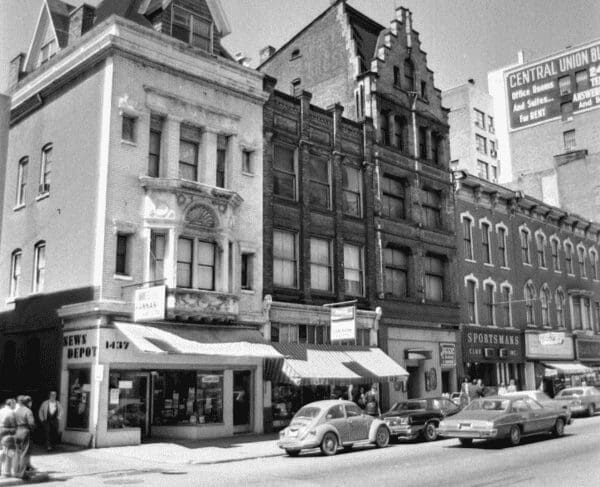(Publisher’s Note: The 12-part series, “The Children of Wheeling’s Mob Era,” will be re-published each evening over the next two weeks so those who missed some or all of the chapters will have another chance to read it. A collection of Steve Novotney’s mob stories over the years will be released in book form this summer.)
Epilogue
It was hard to keep track of people, storytellers tell, because of all the folks sliding in and out of the stores, the restaurants, and the offices that were all over downtown Wheeling. They used the alleys, too, as something of a pedestrian expressway after all the delivery trucks cleared out by the mid-morning, and some fire escapes were used for sneakaways, too.
The city steamed in the winters and sweltered in the summers, and it was a socially driven symphony that the bumper-to-bumper traffic played each day and night along Main and Market streets. Even though businesses like grocery stores, retail plazas, and gas stations opened in several Wheeling neighborhoods during the second half of the 20th Century, most of the activity connected to organized crime took place in downtown, near Centre Market, and at several spots in South Wheeling, Warwood, and Woodsdale.
The culture allowed for an open and easy atmosphere for anyone looking for some kind of action because most bars had bookies, corners were crowded with acquaintances, and winks and drinks was a popular combination. “Big Bill” Lias was first to collect a cast of characters who successfully operated gambling rackets and prostitution rings thanks to the shade provided by the man’s legitimate businesses like Zeller’s Steakhouse and Billy’s Bar.
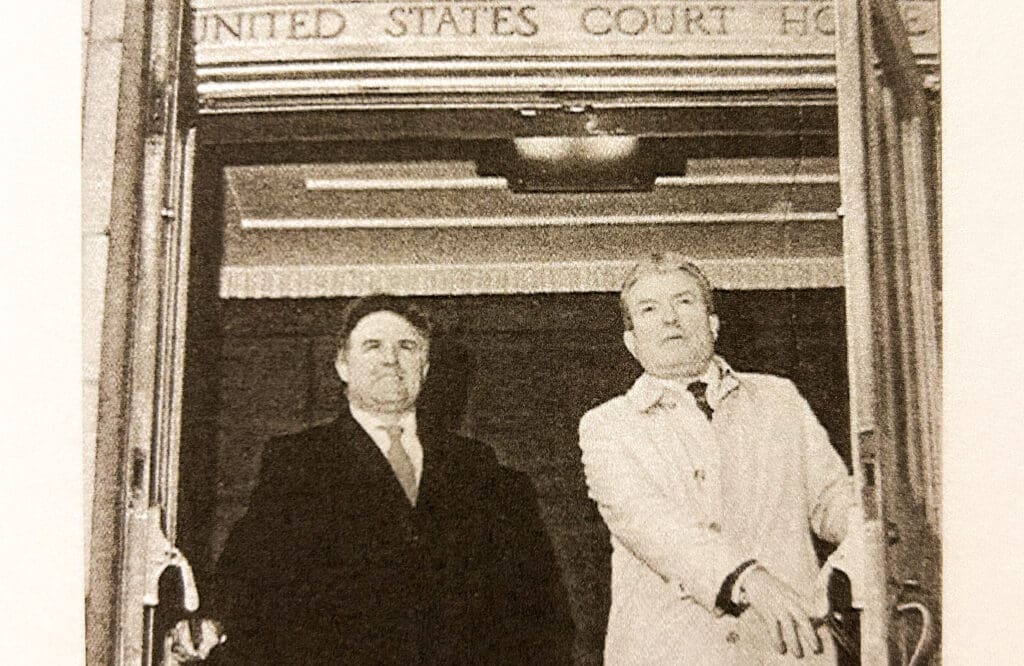
Despite real facts that reveal Lias ordered bombings and beatings for those who dared to oppose or compete, “Big Bill” still is revered today for the turkeys and TVs he gave away during holiday seasons even though the goods came from highway trucks hijacked by his henchmen.
Paul “No Legs” Hankish, however, is remembered as a relentlessly vicious street thug who enjoyed being feared by his associates, his customers, and by anyone who saw him anywhere, and in this series you’ve read about how he survived an assassination attempt in January 1964 before becoming the boss of those rackets and rings that fed like parasites off a working man’s economy.
A pompous “catch us if you can” attitude, though, allowed for infiltration of what some believed was an untouchable network of organized crime, and there were spies with eyes and squealers, too, who offered the evidence federal authorities needed to dismantle what a pair of mob bosses had constructed over five decades in and around the city of Wheeling.
These stories have been told by curious kids who took a look into Wheeling’s darkness, some only to see how the devils danced but were smart enough to stay a spectator while others were searching for paths of opportunity. A few, though, were forced to endure unexpected impacts and ended up frightened forever. These eyewitnesses have offered chapters of history never before revealed because their names never appeared in police reports or in newspaper accounts.
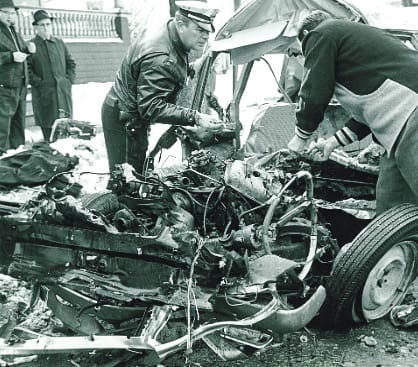
And because no one ever asked them.
They were too young then. Some have chosen silence since. A couple got away with committed crimes by ducking into the disguise mundane supplies. But they all shared tucked-away memories that were fresh in mind once spoken for the first time in decades, and they shared about the sharp edges of organized crime back when it was an accepted part of society in the Wheeling area.
There could have been 10 more chapters, maybe even 20 or 30, in this series if others would have agreed to shed their fears and tell their tales about what their fathers did, why their mothers chose prostitution, or if surviving members of Hankish’s gambling enterprise would have explained the veins of operation instead of staying under the blankets of obscurity only passed time provides.
Bill Kolibash, on the other hand, made a much different decision. The former U.S. Attorney (1982-1993) not only partnered with his daughter Shariane Taylor and professional crime writer Jon Land to compose the best-selling “Justice Never Rests” that was released on January 28th, but he contributed a great amount of insight for each chapter in “The Children of Wheeling’s Mob Era” series.
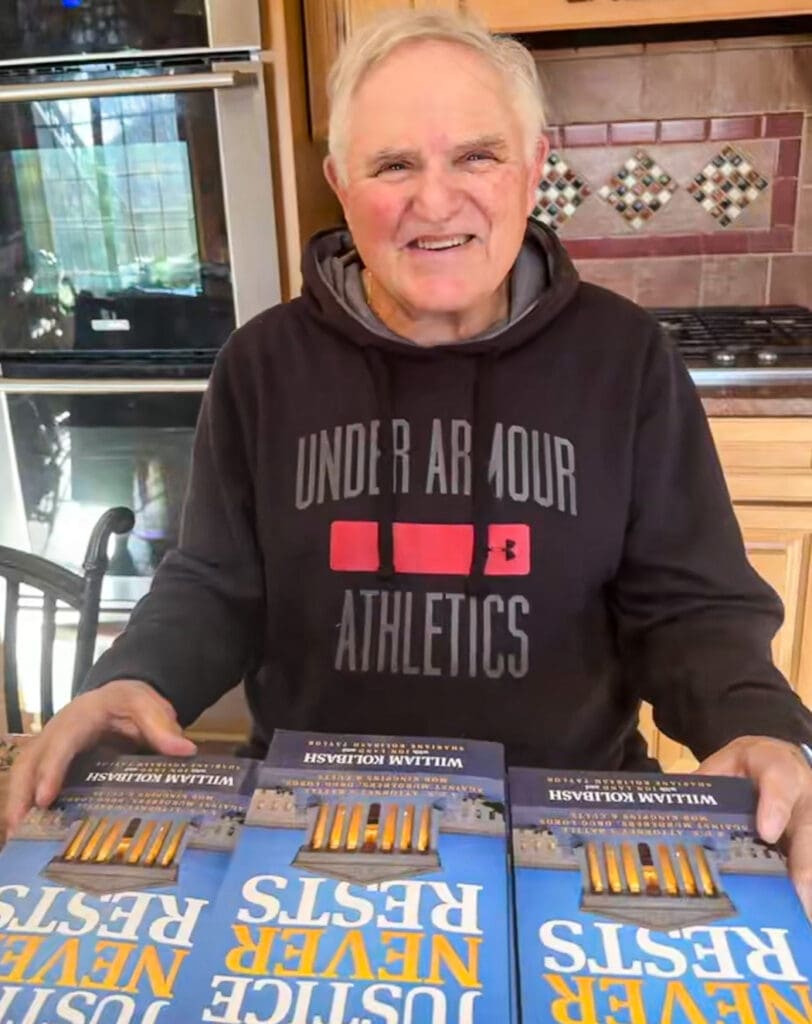
He recalled his father and family members wagering on horse races on Wheeling Island when he was a kid growing up in north Benwood, and how gambling involved even pinball machines, and he was surprised by the differences between Lias and Hankish and how they conducted their respective criminal operations. He realized both kingpins used fear as enforcement, but he discovered Hankish spilled blood far more often and without a wince of worry.
The federal prosecutor explained how he pioneered the use of the RICO (racketeer influenced and Corrupt Organizations) Act statute against mobsters in Hancock County and in the Morgantown/Fairmont areas before concentrating on Hankish and his group of gangsters like Jesse Anderson, Jimmy Griffin, Charles “Buddy” Jacovetty, Donnie Clark, “Big Joe” Mucheck, Theodore “Teddy” Tsoras, Charles G. “Chuckie” Joseph, Ronny Bris, and Donald “Moose” Musilli.
Kolibash remembered his four-year investigation and how the late Tom Burgoyne and Dick Jones were the FBI agents who uncovered the evidence needed to levy 218 indictments against Hankish and 11 members of his criminal enterprise in 1989 and to send all but one – the kingpin’s wife, Patricia was acquitted – to federal prison in 1990. Hankish was sentenced to 33 years in federal custody but would live only six more before passing away from kidney failure in a Virginia prison facility.
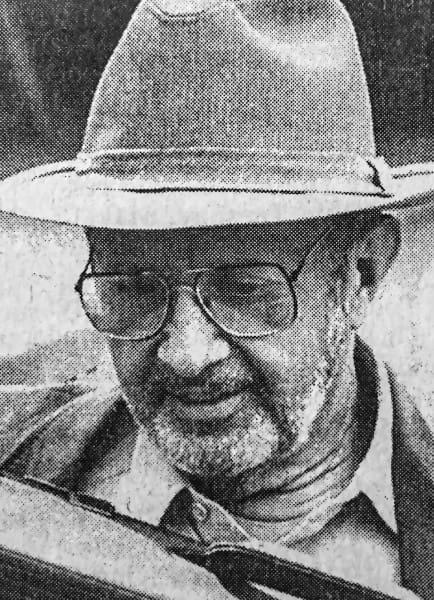
Many older residents still insist Wheeling was a safer and more prosperous place to live when the Lias and Hankish gangs operated the brothels, the gambling, places like Ron’s Value Center and the Palace Disco, and the drug trafficking. They wonder, in fact, if organized crime had been left alone to govern the streets of the Friendly City, would it be more like it was then instead of what it is today.
That’s unlikely, though, especially since West Virginia lawmakers have legalized video lottery gaming (1995), table games (2007) like Blackjack and Craps, and Sporting Betting (2018) after Kolibash destroyed Wheeling’s mob 35 years ago, and the legislators also approved “limited video lottery” poker machines for bars and restaurants in more than 1,500 locations in the state more than 20 years ago.
That’s why some believe the criminal ventures once managed by Lias and Hankish are now operated by a “Mountain State Mob”.
With a history dating back to before the death and destruction caused by the Revolutionary War, Wheeling is a city of souls left behind by the ghosts of massacre, industry, invention, progress, and by decline, and as all history does, fables fade once the tales about the city’s mob eras are no longer told.
Hopefully, these chapters of once-unspoken history have added to the truth about the felons and their felonies that once were accepted ingredients of the city’s culture thanks to organized crime.
THE END
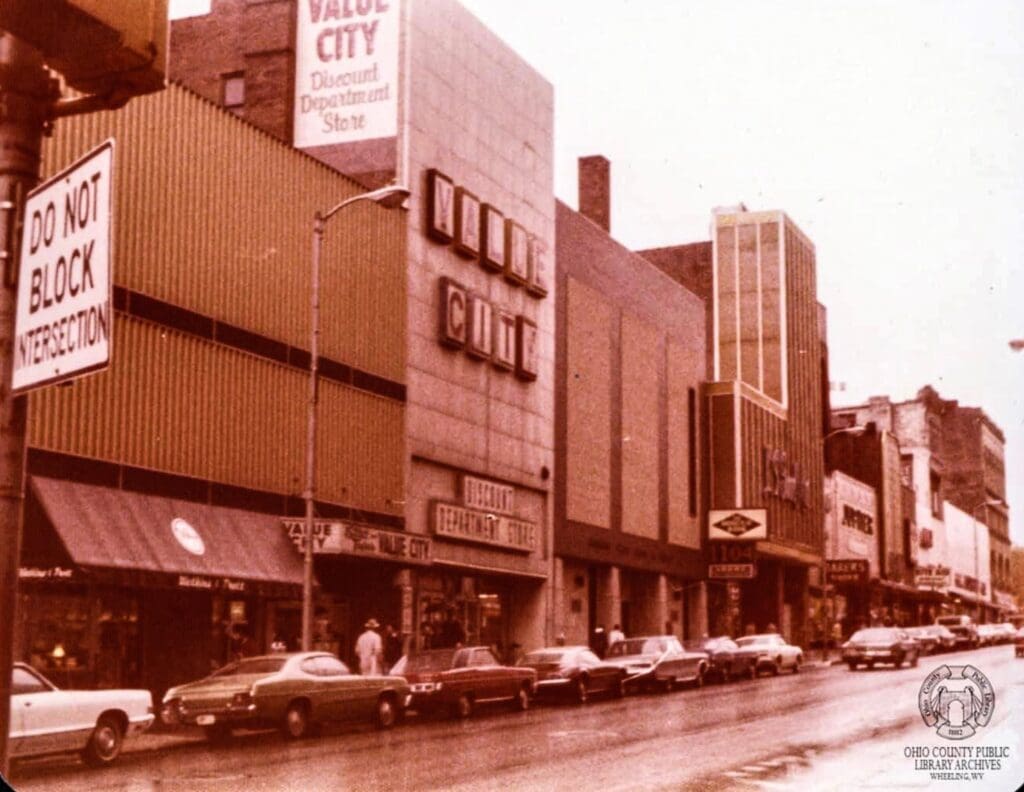
The Series:
(Author’s Note: Each week I’ll be sharing a link to one of the chapters of my first “Wheeling Mob” series I wrote while serving as the founding editor-in-chief of Weelunk, a digital media site now owned and operated by Wheeling Heritage, a non-profit organization that promotes the history and heritage of the city of Wheeling.)

